Community
Q&A with Jermaine Downey: Piping was given to me; it’s time to give it back
Former Armed Forces captain believes North Preston bagpipe program will give youth a global reach
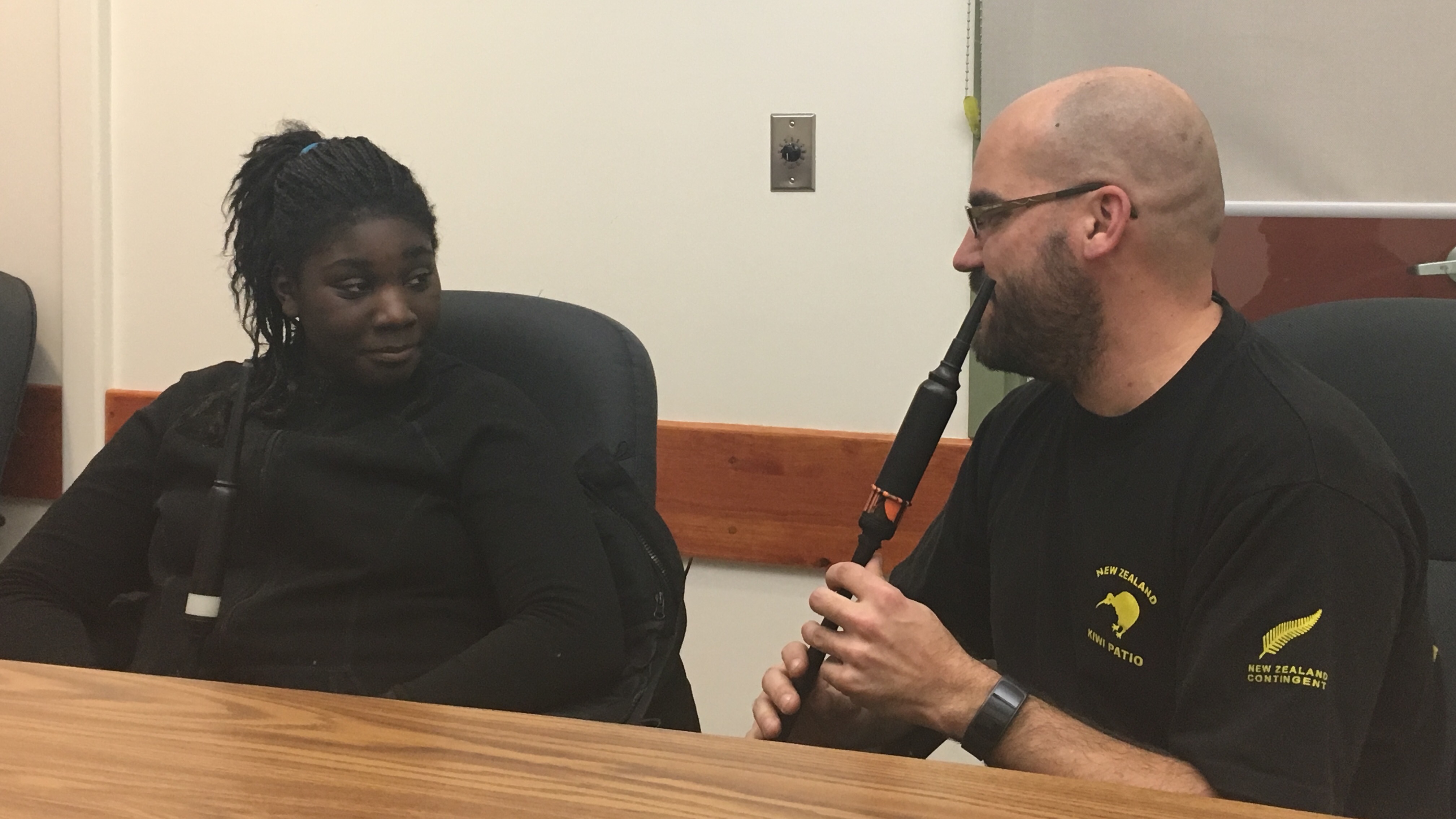
caption
Downey says the focus of the highland arts program is for students to build confidence and positive relationships.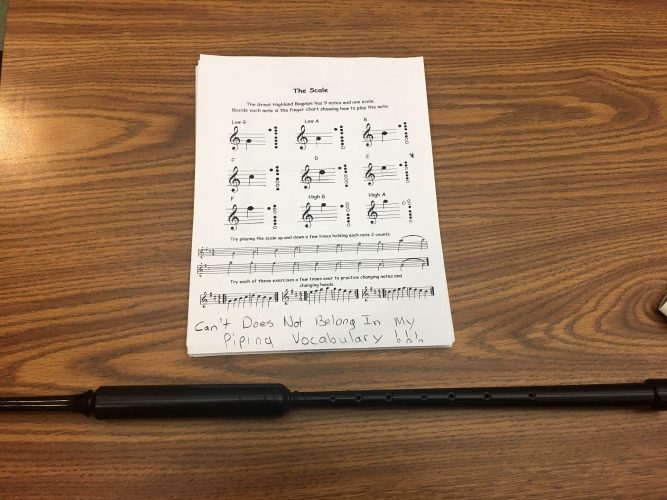
caption
Downey says the focus of the 3Ps Highland Arts Program is for students to build confidence and positive relationships.An instrument close to the heart of many Nova Scotians is finding a special place in the community of North Preston.
The 3P Highland Arts Program, which runs out of the North Preston Community Centre, is the brainchild of Jermaine Downey, a retired Canadian Armed Forces Captain and professional bagpiper with roots in the community. After years working with youth and prison populations in Ontario, Downey returned home to Nova Scotia in October 2016 hoping to attract new students to learn how to play the bagpipes.
Downey believes the musical arts program will offer a unique opportunity for mentorship and the chance to develop existing talent in a community often overshadowed by violence. His wish is for the program to expand beyond its current bagpipe band to include lessons in drumming and highland dance.
The band is made up of six performers, ages 8 to 12, who have been learning the basics of pipe music, while working towards the “3Ps:” peace, purpose and prosperity. Their goal is to compete in the novice category at the 2019 World Pipe Band Championships held annually in Glasgow, Scotland.
Downey shared his vision for the program with The Signal and his experience as one of few African-Nova Scotian bagpipers.
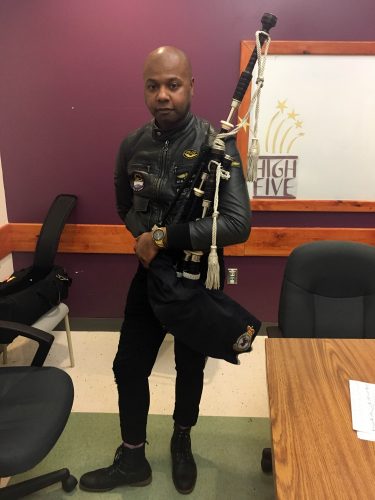
caption
Jermaine Downey returned to his home community of North Preston, Nova Scotia in October to continue his work with youth.When did you discover the bagpipes?
I discovered the bagpipes when I was five. I started learning when I was about 12 years old at the Halifax Police Association. My first instructor was Bob Smith. My mentor was a man by the name of Capt. Donald M. Carrigan. He opened a lot of doors for me when it came to being a piper; he was like my bagpipe ‘father,’ if you will.
What has the world of bagpipes offered you?
It’s offered me access to an entire global community. My best friends are in Scotland; I wouldn’t have those friends if I hadn’t played that instrument. So, it’s offered me some of the best people in my life. It’s offered me an opportunity to travel (because) I don’t think I would have left my community. My life would be very different. Bagpipes have given me a global reach.
What does it mean to you to be among the first professional bagpipers of African-Nova Scotian heritage?
I never think of it that way. I just look at myself as a piper in the community. Being a black piper in Nova Scotia I was kind of invisible here. When I was 21 years old, I was the only black person to play the lone piper at the Nova Scotia International Tattoo, still to this day. I played in the closet for many years; I was embarrassed. I had some champions in the black community, such as Dr. Carolyn Thomas, Dr. Henry Bishop and Dr. Calvin Ruck, among others, but they were few and far between. It was hard. I want to give youth here an opportunity to be visible.
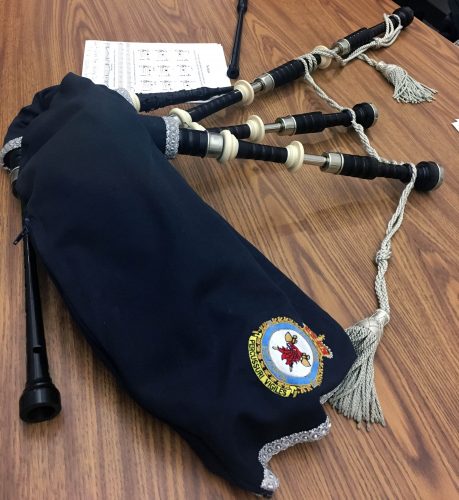
caption
Downey calls the power of the bagpipes his “life-saver.”
What inspired you to share this art form with your community?
In May of 2015 I was sick with pancreatitis (and) I thought I was going to die. I came here in October and I heard what was going on here. I went to the cemetery to visit my father and saw all the young names on the graves. That’s when it hit me; I can’t fix the problem, but I can do something. I was given my life again, so I have to give something back.
I am the only black piper that’s played in a Grade 1 piping band in Nova Scotia. I can’t just leave and not allow another kid to have the same opportunity. That’s when I got the idea to teach bagpipes and teach peace building concepts in the process.
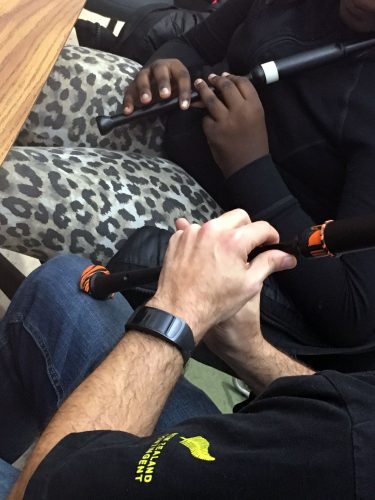
caption
At present, students in the 3P Highland Arts Program meet Thursday evenings at the North Preston recreation centre.Why base the program in North Preston?
It’s not just North Preston — I’m trying to break down barriers. I want kids from outside of the community to come in as well (as) peace builders. So far, the only activity I’ve seen offered here is basketball. There may be kids that don’t want to play basketball. There’s a lot of athletic kids here; highland dancing is very athletic.
North Preston is a base model. The 3Ps Highland Arts Program has the potential to go global because bagpipes are such a global instrument. I’m looking to take the program to places where there is need. This is where my heart is right now.
What would you like participants to take away from the program?
The most important thing to take away from the program, I think, is a friend and a positive experience. Make new friends that open up doors and are a positive influence. That will carry you a lifetime.
